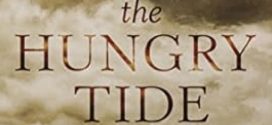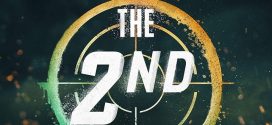First published in 1965, “The Source”, by James A Michener, is part of the pool made by the endless number of books written by mankind about God and religion. And yet, it is different in a way that it hardly discusses God and Religion as we are accustomed to see it portrayed in literature.
| Book Title | : | The Source |
| Author | : | James Albert Michener |
| Publisher | : | Random House (Paperback) |
| Purchase Links | : |
Amazon.com : The Source: A Novel By James Michener Amazon.in : The Source : A Novel By James Michener Flipkart : The Source By James Michener |
The Source focuses on the historical journey of mankind and how the concept of religion came into existence and evolved with the human race over thousands of years. While it seems to be such a vast canvas to focus on, Michener cleverly focuses on that part of Asia, where three most prominent religions i.e., Judaism, Christianity and Islam were born, flourished and are engaged in a mortal battle that seems never-ending even today. Yes, We are talking about Israel.
The story starts as a renowned archaeologist Dr. Cullinane arrives to Makor, in order to start digging the famous ‘tale’ of Makor. Today, it appears to be just a big hill covered in huge pile of rubble, but there was a time when it was a flourishing town teeming with live communities. Situated at a strategic location in Galilee, Makor boasted a formidable castle and tenacious men who managed to change the course of history in their small way. While one part of the story keeps telling us about the archaeological expedition and the contemporary life in Israel of 1960’s, in a parallel thread we start out journey with the ancient men who lived in the caves of Galilee, with no concepts of individuality, family, agriculture, religion or God.
Today, we live in an age when the structure and concepts of our religion are an inherent part of our upbringing. We hardly ever stop to re-think or question what we start following at a very young age. But, if we let go that knowledge for a while, it is easier to visualise how humans would have struggled to formalise the concept of God in the world where survival was so difficult and life was a continuous struggle with so many beasts that were much more powerful than humans. While humans slowly conquered the animal world, with the only superior weapon available to our race, an intelligent mind, there still remained many mysteries to be solved. The most visible in their day-to-day life was that of the changes in the physical world around them including weather and the endless night skies. That is probably why the ancient and primeval Gods were the ones that controlled the nature, e.g. our own Varuna in Rigveda, who was the master of the skies.
We meet the family of Ur in Galilee, as he slowly starts to live apart from his clan and his son becomes a farmer as opposed to a hunter like every other cave-men. We witness the moment as Ur’s wife first stumbles upon calling the superior power to aid them. From this point, we visit Makor again and again, as over time, one group after another, occupies it and the concept of God evolves to yield hundreds of deities to control elements of nature like the God of Earth and the God of Rain and the God of Trees. And then we meet the Hebrews, the travellers of the desert and their One God who can be merciful and merciless at the same time.
The book takes us through the time as Judaism progresses from one stage to another. We empathise with the followers as they are first opposed and then mercilessly persecuted by Greeks, Romans, Christians and Muslims. And yet, they derive their strength from their God and make supreme sacrifices for their religion.
After centuries of exile, the hebrews started returning to Israel, and we witness the dark era around the world war II when they showed exemplary courage to win their nation and continued to build it after their victory. With Cullinane, we learn the conflicts of the modern Israelis. Can a religion serve as a sole binding factor for people coming in from all over the world with their cultural and historical baggage? While Israel has managed to go from strength to strength since its Independence, this still remains an unanswered question.
But, spread over more than 1000 pages, this book, definitely inspires the reader to ask the questions. What is religion? While we all go to such extremes to abide by it, what does it actually mean to us? Over centuries, millions have died for their religion. But, how many of us have actually stopped and asked ourselves, why do I believe in God? What does it mean to me that there is a power out there that can control the Universe?
A very thought-provoking read………………
 ThinkerViews – Views And Reviews Personal views and reviews for books, magazines, tv serials, movies, websites, technical stuff and more.
ThinkerViews – Views And Reviews Personal views and reviews for books, magazines, tv serials, movies, websites, technical stuff and more.



